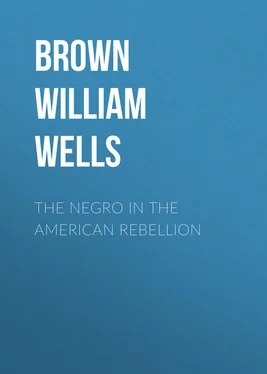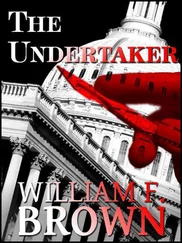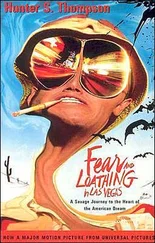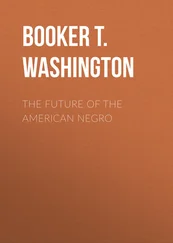William Brown - The Negro in The American Rebellion
Здесь есть возможность читать онлайн «William Brown - The Negro in The American Rebellion» — ознакомительный отрывок электронной книги совершенно бесплатно, а после прочтения отрывка купить полную версию. В некоторых случаях можно слушать аудио, скачать через торрент в формате fb2 и присутствует краткое содержание. Жанр: foreign_antique, foreign_prose, на английском языке. Описание произведения, (предисловие) а так же отзывы посетителей доступны на портале библиотеки ЛибКат.
- Название:The Negro in The American Rebellion
- Автор:
- Жанр:
- Год:неизвестен
- ISBN:нет данных
- Рейтинг книги:4 / 5. Голосов: 1
-
Избранное:Добавить в избранное
- Отзывы:
-
Ваша оценка:
- 80
- 1
- 2
- 3
- 4
- 5
The Negro in The American Rebellion: краткое содержание, описание и аннотация
Предлагаем к чтению аннотацию, описание, краткое содержание или предисловие (зависит от того, что написал сам автор книги «The Negro in The American Rebellion»). Если вы не нашли необходимую информацию о книге — напишите в комментариях, мы постараемся отыскать её.
The Negro in The American Rebellion — читать онлайн ознакомительный отрывок
Ниже представлен текст книги, разбитый по страницам. Система сохранения места последней прочитанной страницы, позволяет с удобством читать онлайн бесплатно книгу «The Negro in The American Rebellion», без необходимости каждый раз заново искать на чём Вы остановились. Поставьте закладку, и сможете в любой момент перейти на страницу, на которой закончили чтение.
Интервал:
Закладка:
The Negro in The American Rebellion His Heroism and His Fidelity
PREFACE
Feeling anxious to preserve for future reference an account of the part which the Negro took in suppressing the Slaveholders’ Rebellion, I have been induced to write this work. In doing so, it occurred to me that a sketch of the condition of the race previous to the commencement of the war would not be uninteresting to the reader.
For the information concerning the services which the blacks rendered to the Government in the Revolutionary War, I am indebted to the late George Livermore, Esq., whose “Historical Research” is the ablest work ever published on the early history of the negroes of this country.
In collecting facts connected with the Rebellion, I have availed myself of the most reliable information that could be obtained from newspaper correspondents, as well as from those who were on the battle-field. To officers and privates of several of the colored regiments I am under many obligations for detailed accounts of engagements.
No doubt, errors in fact and in judgment will be discovered, which I shall be ready to acknowledge, and correct in subsequent editions. The work might have been swelled to double its present size; but I did not feel bound to introduce an account of every little skirmish in which colored men were engaged.
I waited patiently, before beginning this work, with the hope that some one more competent would take the subject in hand; but, up to the present, it has not been done, although many books have been written upon the Rebellion.
Cambridgeport, Mass., Jan. 1, 1867.
CHAPTER I – BLACKS IN THE REVOLUTIONARY WAR AND IN 1812
The First Cargo of Slaves landed in the Colonies in 1620. – Slave Representation in Congress. – Opposition to the Slave-Trade. – Crispus Attucks, the First Victim of the Revolutionary War. – Bancroft’s Testimony. – Capture of Gen. Prescott. – Colored Men in the War of 1812. – Gen. Andrew Jackson on Negro Soldiers.
I now undertake to write a history of the part which the colored men took in the great American Rebellion. Previous to entering upon that subject, however, I may be pardoned for bringing before the reader the condition of the blacks previous to the breaking out of the war.
The Declaration of American Independence, made July 4, 1776, had scarcely been enunciated, and an organization of the government commenced, ere the people found themselves surrounded by new and trying difficulties, which, for a time, threatened to wreck the ship of state.
The forty-five slaves landed on the banks of the James River, in the colony of Virginia, from the coast of Africa, in 1620, had multiplied to several thousands, and were influencing the political, social, and religious institution’s of the country. Brought into the colonies against their will; made the “hewers of wood and the drawers of water;” considered, in the light of law and public opinion, as mere chattels, – things to be bought and sold at the will of the owner; driven to their unrequited toil by unfeeling men, picked for the purpose from the lowest and most degraded of the uneducated whites, whose moral, social, and political degradation, by slavery, was equal to that of the slave, – the condition of the negro was indeed a sad one.
The history of this people, full of sorrow, blood, and tears, is full also of instruction for mankind. God has so ordered it that one class shall not degrade another, without becoming themselves contaminated. So with slavery in America. The institution bred in the master insulting arrogance, deteriorating sloth, pampered the loathsome lust it inflamed, until licentious luxury sapped the strength and rottened the virtue of the slave-owners of the South. Never were the institutions of a people, or the principles of liberty, put to such a severe test as those of the American Republic. The convention to frame the Constitution for the government of the United States had not organized before the slave-masters began to press the claims of their system upon the delegates. They wanted their property represented in the national Congress, and undue guarantees thrown around it; they wanted the African slave-trade made lawful, and their victims returned if they should attempt to escape; they begged that an article might be inserted in the Constitution, making it the duty of the General Government to put down the slaves if they should imitate their masters in striking a blow for freedom. They seemed afraid of the very evil they were clinging so closely to. “Thus conscience doth make cowards of us all.”
In all this early difficulty, South Carolina took the lead against humanity, her delegates ever showing themselves the foes of freedom. Both in the Federal Convention to frame the Constitution, and in the State Conventions to ratify the same, it was admitted that the blacks had fought bravely against the British, and in favor of the American Republic; for the fact that a black man (Crispus Attucks) was the first to give his life at the commencement of the Revolution was still fresh in their minds. Eighteen years previous to the breaking out of the war, Attucks was held as a slave by Mr. ‘William Brown of Framingham, Mass., and from whom he escaped about that time, taking up his residence in Boston. The Boston Massacre, March 5, 1770, may be regarded as the first act in the great drama of the American Revolution. “From that moment,” said Daniel Webster, “we may date the severance of the British Empire.” The presence of the British soldiers in King Street excited the patriotic indignation of the people. The whole community was stirred, and sage counsellors were deliberating and writing and talking about the public grievances. But it was not for “the wise and prudent” to be the first to act against the encroachments of arbitrary power. “A motley rabble of saucy boys? negroes and mulattoes, Irish Teagues, and outlandish Jack tars” (as John Adams described them in his pica in defence of the soldiers) could not restrain their emotion, or stop to inquire if what they must do was according to the letter of any law. Led by Crispus Attucks, the mulatto slave, and shouting, “The way to get rid of these soldiers is to attack the main guard; strike at the root; this is the nest,” with more valor than discretion, they rushed to King Street, and were fired upon by Capt. Preston’s Company. Crispins Attucks was the first to fall: he and Samuel Gray and Jonas Caldwell were killed on the spot. Samuel Maverick and Patrick Carr were mortally wounded.
The excitement which followed was intense. The bells of the town were rung. An impromptu town meeting was held, and an immense assembly was gathered.
Three days after, on the 8th, a public funeral of the martyrs took place. The shops in Boston were closed; and all the bells of Boston and the neighboring towns were rung. It is said that a greater number of persons assembled on this occasion than were ever before gathered on this continent for a similar purpose. The body of Crispus Attucks, the mulatto slave, had been placed in Faneuil Hall, with that of Caldwell, both being strangers in the city. Maverick was buried from his mother’s house, in Union Street; and Gray from his brother’s, in Royal Exchange Lane. The four hearses formed a junction in King Street; and there the procession marched in columns six deep, with a long file of coaches belonging to the most distinguished citizens, to the Middle Burying-ground, where the four victims were deposited in one grave, over which a stone was placed with this inscription: —
“Long as in Freedom’s cause the wise contend,
Dear to your country shall your fame extend;
While to the world the lettered stone shall tell
Where Caldwell, Attucks, Gray, and Maverick fell.”
Интервал:
Закладка:
Похожие книги на «The Negro in The American Rebellion»
Представляем Вашему вниманию похожие книги на «The Negro in The American Rebellion» списком для выбора. Мы отобрали схожую по названию и смыслу литературу в надежде предоставить читателям больше вариантов отыскать новые, интересные, ещё непрочитанные произведения.
Обсуждение, отзывы о книге «The Negro in The American Rebellion» и просто собственные мнения читателей. Оставьте ваши комментарии, напишите, что Вы думаете о произведении, его смысле или главных героях. Укажите что конкретно понравилось, а что нет, и почему Вы так считаете.











